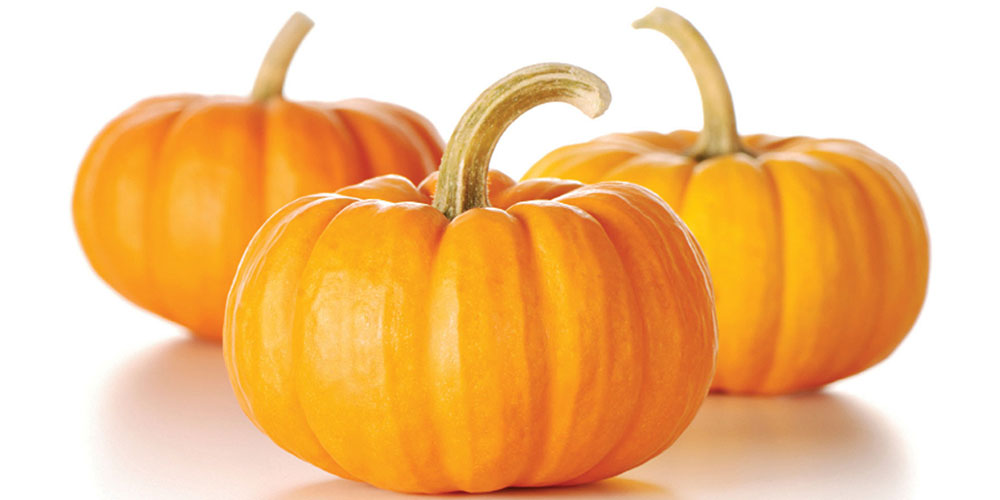Coconut Ice Cream
- 20 Apr - 26 Apr, 2024

Nutritional Profile
Pumpkin provides 26 calories per 100gm; 0.1g fat, 1g of protein, 7g of carbohydrates, 1mg of sodium and 340mg of potassium.
Interesting facts
· Pumpkins are a member of the gourd family which includes cucumbers, honeydew melons, cantaloupe, watermelons and zucchini. These plants are native to Central America and Mexico, but now grow in six continents.
· In 1584, after French explorer Jacques Cartier explored the St. Lawrence region of North America, he reported finding “gros melons.” The name was translated into English as “pompions,” which has since evolved into the modern “pumpkin.”
· More specifically, they are a winter squash but because they are savoury, many people call them vegetables anyway.
· Pumpkins are popular decorations during Halloween. A carved pumpkin illuminated by candles is known as a ‘jack-o-lantern.’ The tradition is believed to have come from Ireland where they used to carve faces into turnips, beets and other root vegetables as part of the Gaelic festival of Samhain. Irish immigrants brought their customs to America, but found that pumpkins were much easier to carve.
· Native Americans used every part of the pumpkin. They ate pumpkin flesh roasted, baked, boiled and dried. They ate the seeds and also used them as medicine. The blossoms were added to stews, and dried pumpkin was stored for winter use or ground into flour. They dried the shells and used them as bowls and storage containers.
Health facts
· Pumpkins are low in fat and sodium, and high in fibre. They are good sources of vitamin A, vitamin B, potassium and protein.
· Pumpkins are 90% water, and that makes them low calorie. One cup of a canned pumpkin has only 83 calories and half-a-gram of fat. In comparison, the same serving size of sweet potato has triple the calories.
· They also have more fibre than kale, more potassium than bananas and are full of heart-healthy magnesium and iron.
· Pumpkin seeds are rich in tryptophan, the amino acid that is responsible for helping the body make serotonin, the feel-good neurotransmitter that helps you relax and unwind. Not only do pumpkin seeds promote better sleep, the serotonin will improve your mood, as well.
· A cup of cubed pumpkin contains almost twice the recommended daily intake of vitamin A, which promotes good vision, especially in dim light. It has also been found to slow the decline of retinal function in those with retinitis pigmentosa, a degenerative eye disease that can lead to blindness.
Study
Pumpkin seed oil is full of phytoestrogens, which research shows are beneficial for preventing hypertension. When researchers fed rats a diet supplement with the oil, they found that it helped lower both, systolic and diastolic blood pressure in just 12 weeks.
COMMENTS